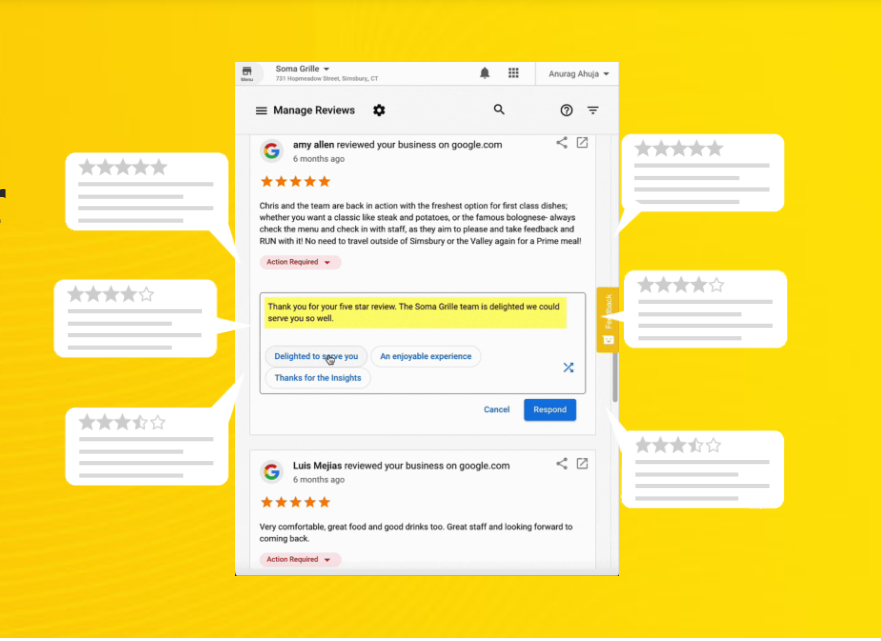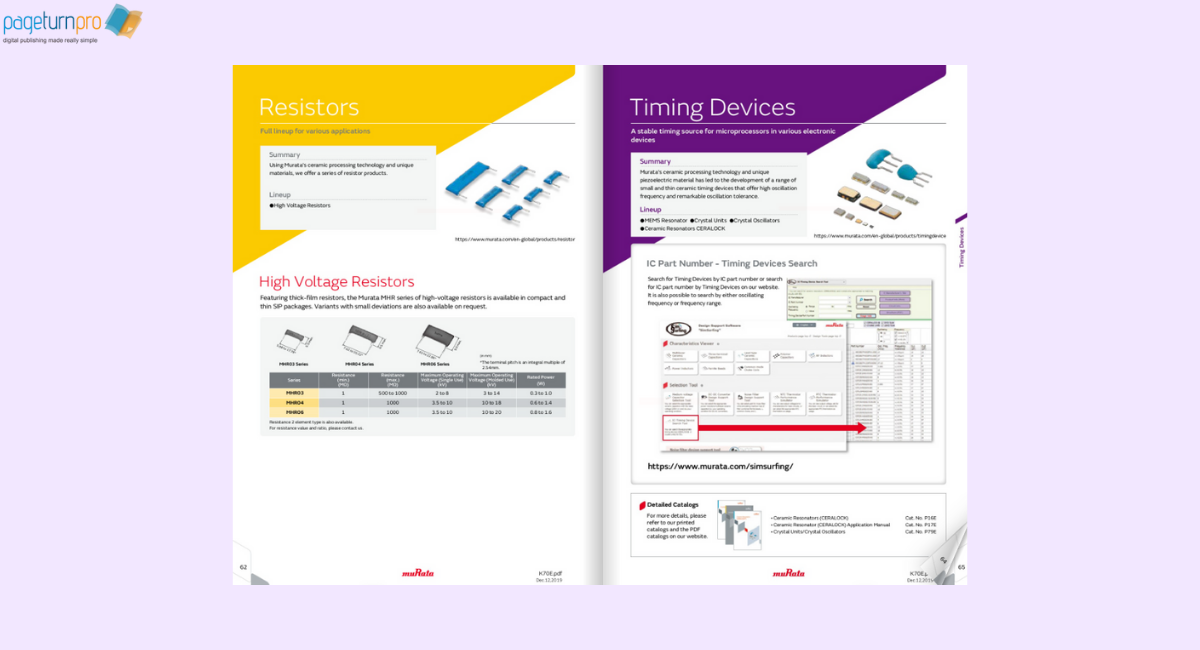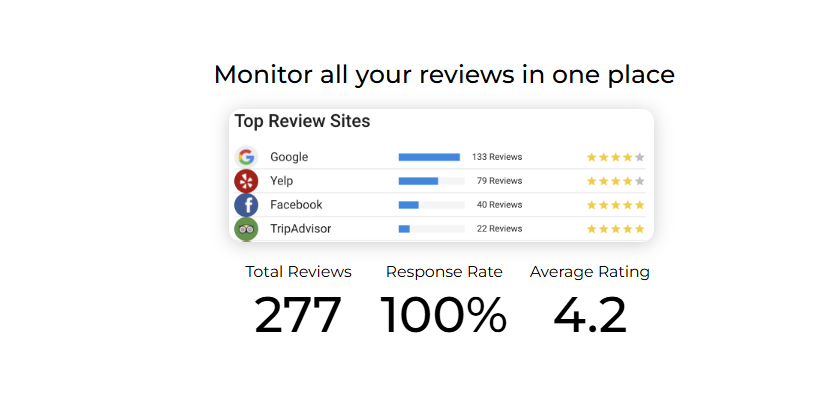Reputation management for restaurants – How to do it right!

Strong 8k brings an ultra-HD IPTV experience to your living room and your pocket.
Running a restaurant is not just about creating delicious dishes; it’s about creating a brand that customers trust and rave about. In today's time, managing your restaurant's reputation has become as essential as perfecting your secret sauce. With the click of a button, a single review can influence hundreds of potential diners. That's why reputation management for restaurants isn't just a buzzword - it's a vital ingredient in the recipe for success in the restaurant business.
What is Online Reputation Management?
Before we dish out the secret recipe for reputation management, let's first get acquainted with what it really means. Simply put, online reputation management (ORM) is the practice of influencing or controlling an individual's or business’s reputation. For restaurants, this involves managing reviews, responding to feedback, and curating a positive image online.
Online reputation management isn't just about damage control. It’s also about creating a proactive strategy to ensure that your restaurant is seen in the best light possible. This can involve social media presence, customer engagement, and even how you handle complaints.
When done right, ORM can help attract more customers, improve customer loyalty, and boost your bottom line. A strong online reputation can differentiate your restaurant from the competition, making it a must-visit destination.
Reputation Management for Restaurants
Now that we understand the importance of reputation management, let's explore how to do it right! Here are some proven strategies to boost your restaurant's reputation.
1. Monitor Online Reviews
The first step in managing your reputation is knowing what people are saying about you. Regularly monitor platforms like Yelp, Google Reviews, and TripAdvisor. This allows you to stay informed and address any issues promptly.
Keep track of both positive and negative reviews. While positive reviews are great for boosting your morale, negative reviews can be valuable learning opportunities. They offer insights into areas where you can improve and help you understand customer expectations.
Don’t forget to engage with reviewers! Thank them for their feedback and address any concerns they may have. This shows that you value their opinion and are committed to providing excellent service.
2. Respond to Feedback Gracefully
Responding to customer feedback - especially negative feedback- with grace and understanding is an art. Apologize for any inconvenience and offer a solution if possible.
A personalized response can turn a disappointed customer into a loyal advocate. It shows that you care about their experience and are willing to make things right. For positive reviews, express your gratitude and encourage them to visit again.
Remember, your responses are public and can influence potential diners. A well-crafted response can demonstrate your commitment to customer satisfaction and enhance your reputation.
3. Encourage Positive Reviews
Encourage satisfied customers to leave positive reviews. While you can’t force anyone to write a review, a gentle nudge can make all the difference. Consider adding a polite note on receipts or sending a follow-up email thanking them for their visit and inviting them to share their experience online.
Make it easy for customers to leave reviews by providing direct links to your review pages. You can also run occasional campaigns, such as offering a discount on their next visit in exchange for an honest review.
Positive reviews are like gold - collect them and your restaurant will shine even brighter. They act as social proof, encouraging others to experience the fantastic service and food you offer.
4. Build a Strong Social Media Presence
Social media is a powerful tool for reputation management. It allows you to showcase your restaurant’s personality, engage with customers, and attract new ones. Platforms like Instagram, Facebook, and Twitter are perfect for sharing mouth-watering photos, promotions, and behind-the-scenes content.
Be active and consistent on social media. Respond to comments, share user-generated content, and keep your audience engaged. A strong social media presence can help humanize your brand, making it more relatable and approachable.
Don’t shy away from collaborating with influencers or running social media contests. These strategies can help you reach a wider audience and boost your restaurant's reputation.
5. Deliver Exceptional Customer Service
At the heart of reputation management is exceptional customer service. The dining experience you offer plays a significant role in shaping your reputation. Train your staff to be friendly, attentive, and responsive to customer needs.
Go the extra mile to create memorable experiences for your guests. Personal touches, such as remembering a customer's name or dietary preferences, can leave a lasting impression.
Happy customers are more likely to leave positive reviews and recommend your restaurant to others. By prioritizing customer satisfaction, you'll be well on your way to building a solid reputation.
6. Leverage Technology
Technology can be a game-changer for reputation management. Consider using reputation management tools that help you track reviews, analyze sentiment, and respond to feedback. These tools can save you time and provide valuable insights into customer perceptions.
Online reservation systems, loyalty programs, and mobile ordering apps can enhance the customer experience and streamline operations. By leveraging technology, you can offer a seamless and convenient dining experience that resonates with tech-savvy customers.
Remember, technology should complement, not replace, personal interactions. Use it to enhance your service, not to distance yourself from your customers.
7. Host Events and Collaborations
Hosting events and collaborating with local businesses can boost your restaurant's visibility and reputation. Consider organizing themed nights, cooking classes, or wine tastings to attract a diverse crowd.
Collaborating with local businesses, such as partnering with a nearby bakery for dessert options, can introduce your restaurant to new audiences. It also shows that you’re invested in the community, which can enhance your reputation.
Events and collaborations provide opportunities for positive word-of-mouth and online reviews, further strengthening your reputation.
8. Maintain Consistency
Consistency is key to reputation management. Ensure that your service, quality, and brand message are consistent across all touchpoints. This includes your online presence, in-person interactions, and marketing materials.
Inconsistencies can confuse customers and erode trust in your brand. By maintaining a unified and consistent image, you reinforce your restaurant’s identity and build credibility.
Regularly review your brand materials and customer touchpoints to ensure that they align with your restaurant's values and promise.
9. Gather and Analyze Feedback
Gathering feedback is essential for understanding customer perceptions and areas for improvement. Implement feedback channels, such as comment cards, online surveys, or follow-up emails, to collect valuable insights.
Analyze the feedback to identify trends and common themes. Use this information to address recurring issues and enhance the customer experience.
Feedback is a gift - embrace it and use it to refine your service, menu, and operations.
10. Stay Informed and Adapt
The restaurant industry is dynamic, with evolving trends and customer expectations. Stay informed about industry developments, competitor activities, and emerging technologies.
Adapt to changes by continuously improving your offerings and exploring new opportunities. Flexibility and adaptability are crucial for maintaining a positive reputation in a changing landscape.
By staying informed and proactive, you will be better equipped to address challenges and capitalize on emerging trends.
Final Thoughts
Reputation management for restaurants is an art that requires dedication, empathy, and strategic thinking. By actively managing your online presence, engaging with customers, and delivering exceptional experiences, you can cultivate a positive reputation that stands out.
Your restaurant’s reputation is an invaluable asset - nurture it, and it will reward you with loyal customers and sustained success. Remember, every interaction is an opportunity to reinforce your brand and create lasting memories.
Happy managing, and here's to a bright and flavorful future for your restaurant!
Note: IndiBlogHub features both user-submitted and editorial content. We do not verify third-party contributions. Read our Disclaimer and Privacy Policyfor details.







